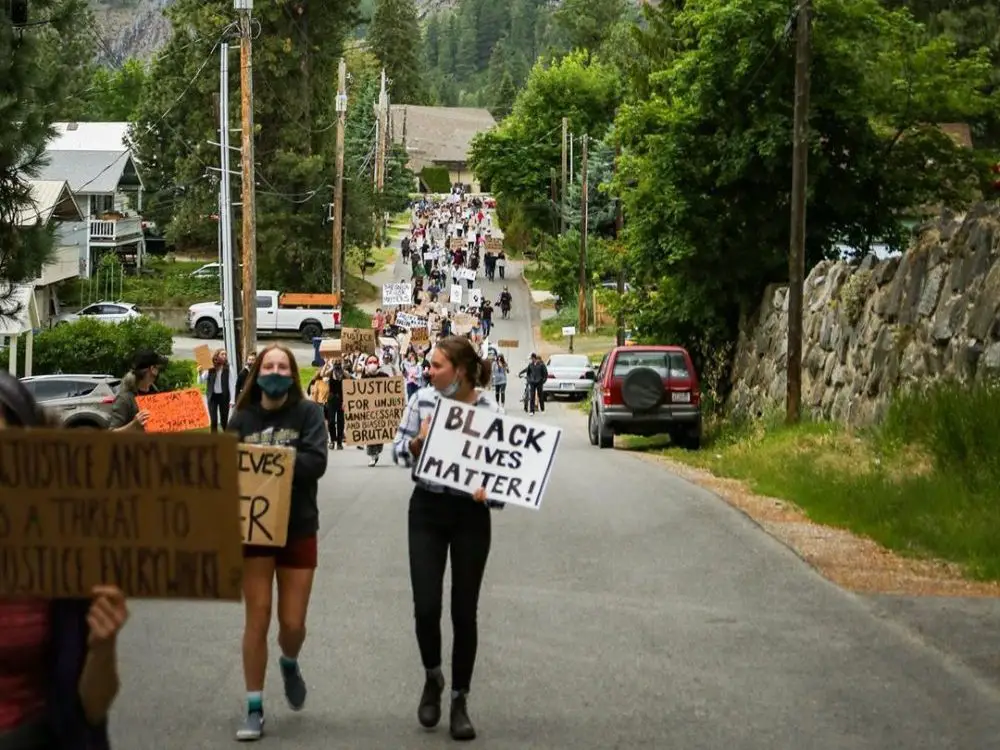As protesters flood the streets and saturate social media with resources to help support the Black Lives Matter movement, more and more people are asking themselves what it means to be an ally to BIPOC (Black, Indigenous and People of Color) and what allyship looks like. Educating oneself about the systemic racism underlying American society has become a priority for people who are working to become better allies, including myself — a white woman with white privilege. It’s also important to involve parents in the discussion.
During dinner table conversations with my parents about current events, I’ve come to realize my responsibilities do not just lie in educating myself; I have a responsibility to help my parents educate themselves as well.
Becoming an Active Ally
Having difficult conversations with relatives who deny the realities of systemic racism is important, without a doubt. My liberal parents are not sorely uneducated in terms of systemic racism; however, conversations are still necessary, even when your family agrees with you.
With my parents, I’m focusing on encouragement. Being non-racist does not suffice, as we are reminded by the Angela Davis quote circulating on social media. My goal at home is to encourage my relatively politically inactive parents to become active allies, as I personally work to do the same.
“In a racist society it’s not enough to be non-racist, we must be anti-racist” – Angela Davis pic.twitter.com/lpwIvnGDU3
— Breakout Liverpool (@breakoutlpl) June 4, 2020
If your parents are similarly liberal or have political beliefs that align with your own, you may be questioning the necessity of this. Without a doubt, my parents are capable of picking up a New York Times bestseller about race in the United States.
Can they not educate themselves?
There are particular reasons why helping parents educate themselves is important. First, as tail end baby boomers who do not spend much time on social media, my parents — and likely many other boomers — are not exposed to helpful resources that are shared through platforms such as Instagram and Twitter. Although these resources are by no means exhaustive and should not be seen as the only necessary tool for education, social media is a great place to hear diverse voices and be exposed to new ideas.
In addition to not interacting with these resources, people from older generations are less likely to support large changes, such as disbanding police forces. Through mindful interaction, younger generations can bring up these conversations about systemic change that challenge oppressive systems instead of just reforming them. I can share ideas I’m learning about — ideas my parents would not seek out by themselves.
Finally, taking a role in helping parents educate themselves gives allyship a sustained existence. Through daily discussions about racism in the U.S., my parents will hold me accountable in active allyship, just as I will do for them.
So how do I get started?
The first step is simple: talking. As obvious as it may seem, a regular dialogue surrounding race is my top priority within my household. Injustice, social action and current events have always been topics of discussion at our dinner table (perhaps a holdover from all of our time in reform Hebrew school and our occasional visits to synagogue).
But this dialogue should be something that comes up every day, so that perpetual education and action do not fade. Every day, I strive to bring up ideas I’ve learned about. It’s also important to share resources that, as I mentioned before, many parents may not be exposed to. Instagram is one of the platforms of choice for many activists, and I have made it a priority to share these profiles and voices, both of activists I have already been following and those I have recently been introduced to.
These are voices I learn from that my parents can learn from too. When I see a post I find particularly useful, such as lists of black-owned businesses to support, petitions to sign or organizations to contribute to, I no longer only share it with my friends on Instagram, I take the time to screenshot it and send it to my parents. Just as it does for me, it allows them to engage in active allyship.
https://www.instagram.com/p/CA64OIaBBne/
Finally, with the help of the many lists of media about racism that have been compiled and shared online, education and reflection can be cultivated through a family book club of sorts.
Education Through Books
No, I am not suggesting a weekly organized sit-down session. With books about race such as Ibram X. Kendi’s “How To Be An Antiracist” and Robin DiAngelo’s “White Fragility” flying off of shelves, it’s important to note that reading one or two books about race is not enough. Reflection and discussion must come into play.
Because libraries are closed right now, this is a little harder. Books can be accessed through digital collections from local libraries. If possible, invest in physical copies from local black-owned bookstores.
Interactive reading is key here. Highlighting and adding notes before handing over the book to family members and then encouraging them to do the same will help everyone retain the author’s message. Writing reflections will help everyone consider how to implement the lessons and also encourage discussion.
In recognition of Pride Month and in an attempt to elevate black queer voices, the book I’ve chosen to read and share with my parents this month is Saeed Jones’ memoir “How We Fight for Our Lives.” Each month, I intend to make a list with my parents of reading materials (as well as podcasts and movies) to choose from. This allows us to elevate BIPOC voices and educate ourselves.
The steps I’m taking to help my parents educate themselves while I educate myself are a good start. It’s time to prioritize education, and it is imperative to keep working at it — our education will fuel our actions. I encourage you to take similar steps with your parents and other family members. Make it a family priority to build a family of allies.

















